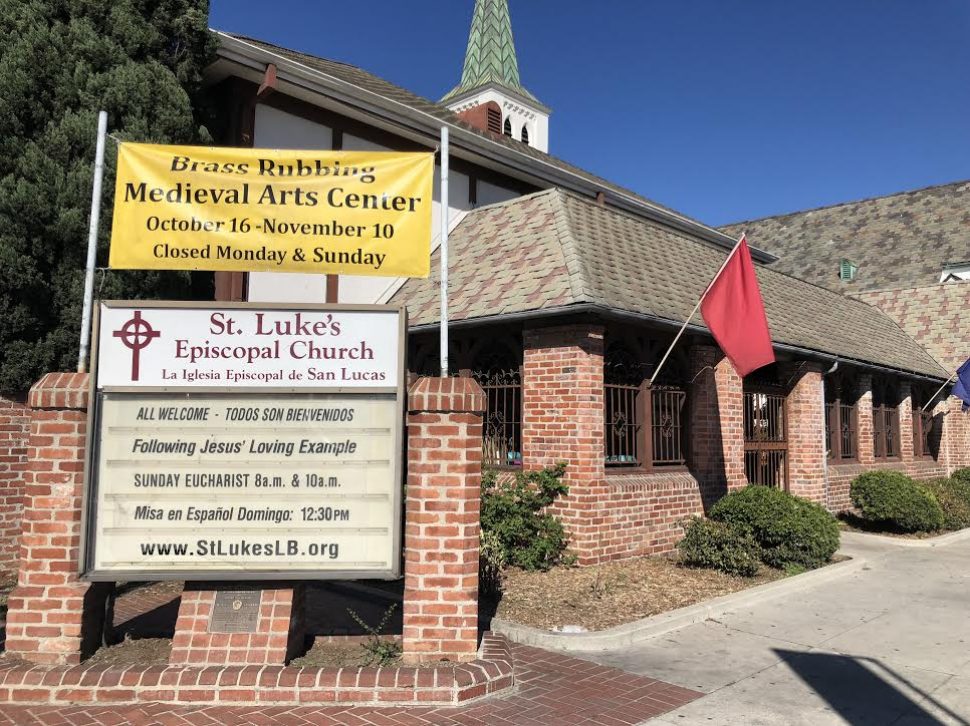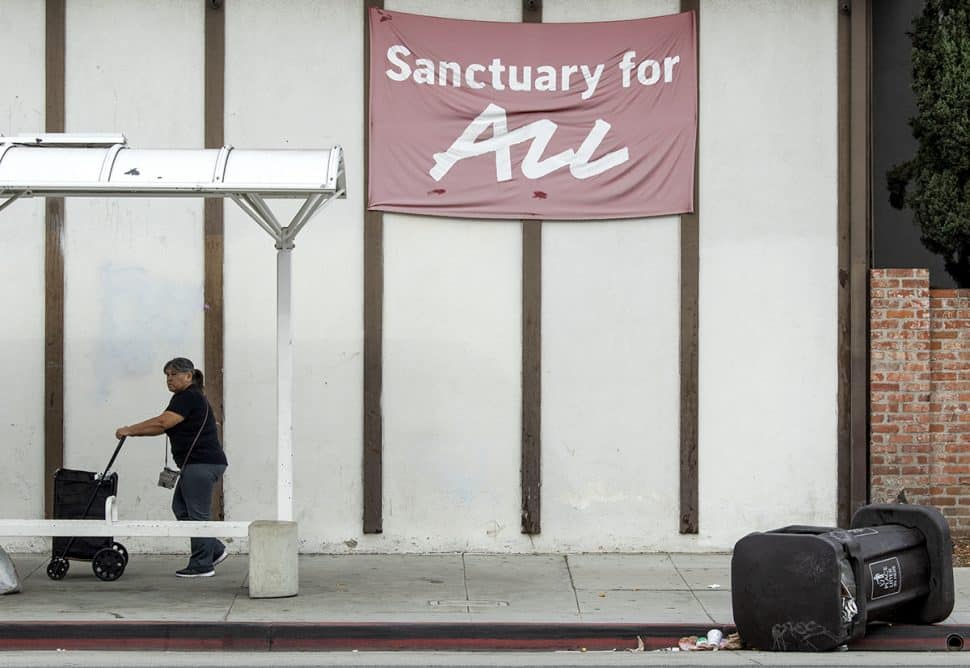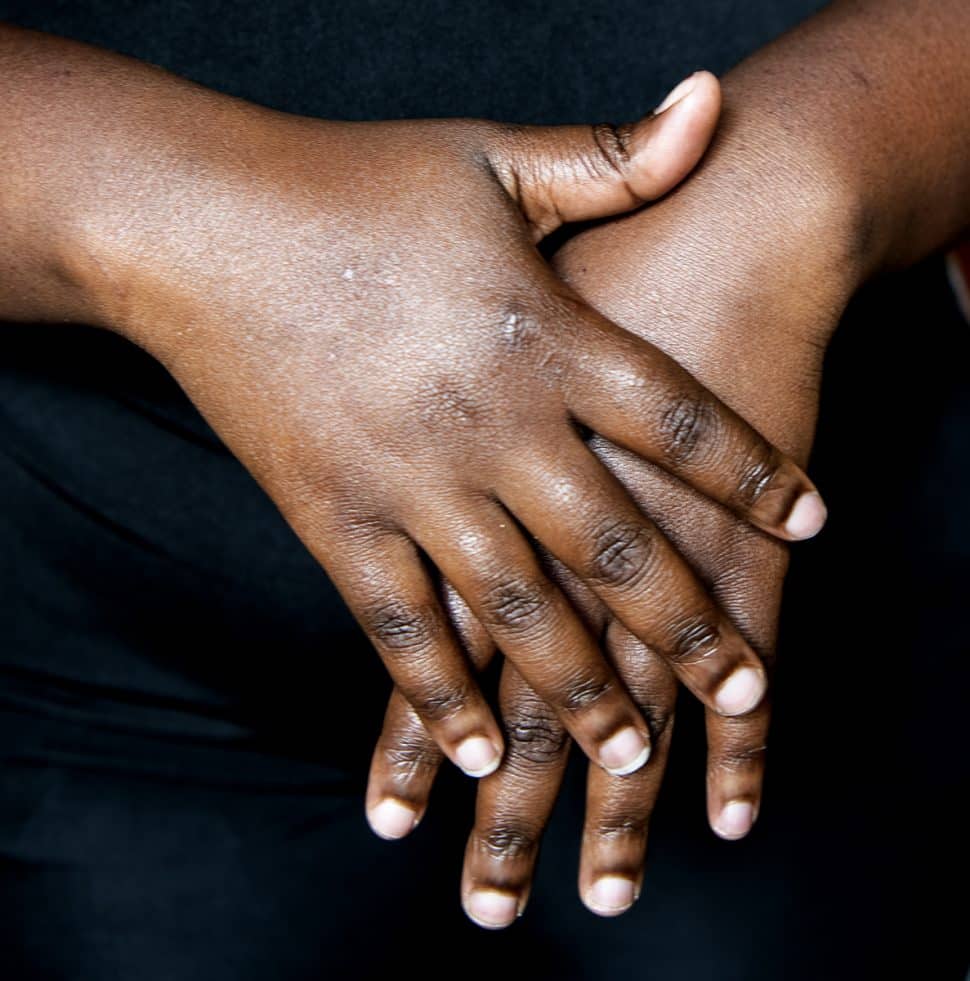This story is the first in a two-part series looking at how St. Luke’s Episcopal Church in Long Beach helps immigrants.
Up until a few years ago, life was good in Uganda for Lucy. She had just graduated from a local university in 2013 and was looking forward to what came next. Unfortunately, what came next, a year later, was Lucy being forced to flee to Kenya to seek asylum after someone exposed a secret she had been keeping for some time: she was bisexual.
“They told all the people around me, the community and family,” said the 27-year-old who asked that her real name not be used.
She was threatened but received no support from her family.
“They were coming up to me, the whole community was coming up to me, so I had to run,” Lucy said. “[They said] ‘You’re an outcast, that’s not allowed here, how can you do stuff like that?’ No one physically got me. They were threatening me, they were coming to my house where I grew up.”
Today, Lucy finds herself living in Alamitos Beach just a few blocks away from the Pacific Ocean. She lives in a modest apartment she shares with a fellow Ugandan woman who fled under similar circumstances. Like Lucy, Faith (who asked to change her real name as well) is also bisexual and they both have young children.
“In Uganda, I couldn’t openly be myself, I was indoors my entire life,” Faith, 28, said. “When my family realized I was gay, they were so mad they rejected me.”
Faith ended up staying with friends for a couple of years before fleeing Uganda and eventually landed in Long Beach in 2015. Both women were able to find sanctuary in the city thanks to St. Luke’s Episcopal Church, just north of Downtown Long Beach, which provides not only housing but financial, spiritual and mental support to any displaced person, especially LGBTQ Ugandan refugees, under its Refugee Ministry.
“[It’s] literally a life-saving ministry,” said the church’s associate rector the Rev. Nancy Frausto. “Because this isn’t just refugees, this is LGBTQ refugees. Most Christian churches will help if they deny their sexuality, let’s just be honest, and here at St. Luke’s, we’re an open and affirming and welcoming place.”

Lucy said that most LGBTQ persons in Uganda are killed by their communities; stones are thrown at them, she said. If they survive they’re lucky; the only friend she knew who experienced the same type of persecution died because he was gay.
While one’s sexual orientation is far from controversial material in Long Beach—home to a gay mayor, gay bars, an annual pride parade, and rainbow-painted sidewalks—in Uganda it’s against the law, criminalized under a colonial-era law in Uganda’s penal code.
“It prohibits ‘carnal knowledge’ among people of the same sex and gives a life sentence to people found guilty,” said Human Rights Watch’s Africa Division researcher Oryem Nyeko, adding that police have been known to conduct “invasive anal exams” of people accused of having same-sex relations.
Ugandan authorities have blocked or raided Pride events. In 2016, police raided one such celebration in the capital city of Kampala where they beat and arrested several attendees. Since then, the event has not been held. This past May, the country’s Minister of Ethics and Integrity, Simon Lokodo, called for the shutdown of the International Day Against Homophobia, Biphobia and Transphobia in Kampala as well as the health ministry’s inaugural Conference on Key and Priority Populations, which included LGBTQ persons, arguing that it would “promote homosexuality and other dirty things.”
A 2013 Anti-Homosexuality Act allowed sentences of life in prison for sexual acts between same-sex consenting adults. Previous versions of the Act called for death sentences—known as the “Kill the Gays” law—but Uganda’s Parliament ultimately passed the life sentences version instead. The law basically criminalized homosexuality, including “attempted” or “promoted” homosexuality, as well as same-sex marriage, noted Nyeko. It also criminalized anyone who kept a house, room, set of rooms or place of any kind for purposes of homosexuality, a provision used to justify evicting LGBTQ tenants.
In 2014, Uganda’s Constitutional Court eventually held that the law was invalid for procedural reasons, Nyeko said.
Despite this, the damage was done.
“Even though the law was overturned it created this social acceptance of open persecution,” said Amy Valenzuela-Mier, who is one half of the volunteer-led Refugee Ministry at St. Luke’s.

Valenzuela-Mier and her colleague Tom Crowe said they have heard stories of Ugandan refugees now living in Long Beach who had their businesses burned down, who were trapped in churches, attacked by mobs and had their names and faces published in local newspapers. Some even had their families kidnapped and imprisoned.
Because of these open persecutions, at least 500 LGBTQ Ugandans have had to flee to refugee camps over the last couple of years, Valenzuela-Mier said. Still, even at these places of so-called “refuge” many LGBTQ persons faced hostility from fellow refugees.
“Most people end up migrating to urban centers where they have no legal status and often have family members who travel to come and get them and bring them back or even to persecute them further,” said Valenzuela-Mier.
It’s worse for women who may be victims of “corrective rape” or have a bounty placed on them by family. Because Uganda is not a war-torn country, when people flee from there it is assumed they are LGBTQ, resulting in constant attacks from fellow refugees. Lucy said she experienced lots of homophobia from other nationalities, describing the first camp she stayed at for only a few months as a terrible experience.
“There was no access to medical facilities, there were attacks nightly, attacking, burning your houses, so I had to just leave for my safety,” Lucy said.
The city of Nairobi, where Lucy stayed for two years before coming to the U.S., was still difficult but she had access to medical facilities which she needed for her daughter who was born during that time.

This is why St. Luke’s ministry was created in 2015, and why Valenzuela-Mier and Crowe, who identify as LGBTQ, decided to help.
“We really think it’s important, as gay people especially, to really think of gay and lesbian people as belonging to a diaspora that we find ourselves anywhere and we have to support each other in whatever country people are,” said Valenzuela-Mier. “We’re still part of the same culture.”
“Our rainbow culture,” Crowe added.
In that first year, when the humanitarian aid organization World Relief asked for help from St. Luke’s, about five Ugandan refugees were taken in and resettled in Long Beach with the help of local religious institutions and organizations such as First Congregational and Temple Israel.
Since then, dozens more have been helped, with some moving to other parts of the country to be with family and friends.
“Southern California is so expensive, it’s not uncommon for people to out-migrate,” said Valenzuela-Mier. “Often a refugee will land in one city and then be pulled to the other cities for economic opportunities or family ties. So we have had a few people who have moved.”
Others have made a home in Long Beach, mostly in Alamitos Beach, or the “Gay Ghetto”, as Lucy and Faith refer to the city’s neighborhood currently being gentrified.
“Immigrants are good at creating their communities of support,” said Crowe. “Whether the Irish in Boston, Mexicans in LA., people know how to survive if you leave them alone and let them survive.”
Because of these shared experiences, the ministry often tries to house recent refugees such as Lucy who came in September with other members of the Ugandan community. The church has also utilized volunteer therapists to help with counseling, said Crowe.
“When we had Lucy, I didn’t know her, but when they asked if she could stay, I said ‘OK, alright, I’m down,” Faith said, acknowledging the help she received from others.
Faith was part of that first group of refugees who came to Long Beach. After staying in different apartments for months at a time, the ministry was able to help her get her own apartment. She was also able to get a job as a driver for Uber and Lyft.
Lucy hopes to get a job soon as well. While she admits it has been hard since she’s a new immigrant with limited experience, she hopes to use her degree in procurement and logistics management to work for a place like the Port of Long Beach.
“There’s a huge sense of urgency and motivation that’s driven by the refugee,” said Valenzuela-Mier. “I think that’s a common misconception that is really politicized.”
Since President Donald Trump came into office, there has been a major decline in the number of refugees allowed into the country as well as a drop in federal funding to the resettlement agencies who get paid for each person resettled, according to Valenzuela-Mier, who called it a “slash-and-burn experience.”
“I don’t understand that. I refuse to understand,” said Crowe. “Because we are a nation of refugees. To suddenly change that to say only people who are wealthy can get visas, as Trump wants to do, to me that’s immoral.”
While it is unknown how many more LGBTQ asylum seekers may find themselves resettled, the ministry in the meantime has found other ways of helping those in camps who are not allowed to work.
The ministry currently provides monetary subsistence to about 20 refugees in Nairobi per month, providing anything from $30 for individuals to $50 to mothers. Many of those being helped are friends that refugees in Long Beach made while in the camps. The church has received grants from nonprofits but mostly relies on grassroots fundraising.
“We are a nation—at least I believe we are a nation—that does accept and take the tired, your huddled masses yearning to be free,” said Crowe. “That’s the America that I believe in.”

